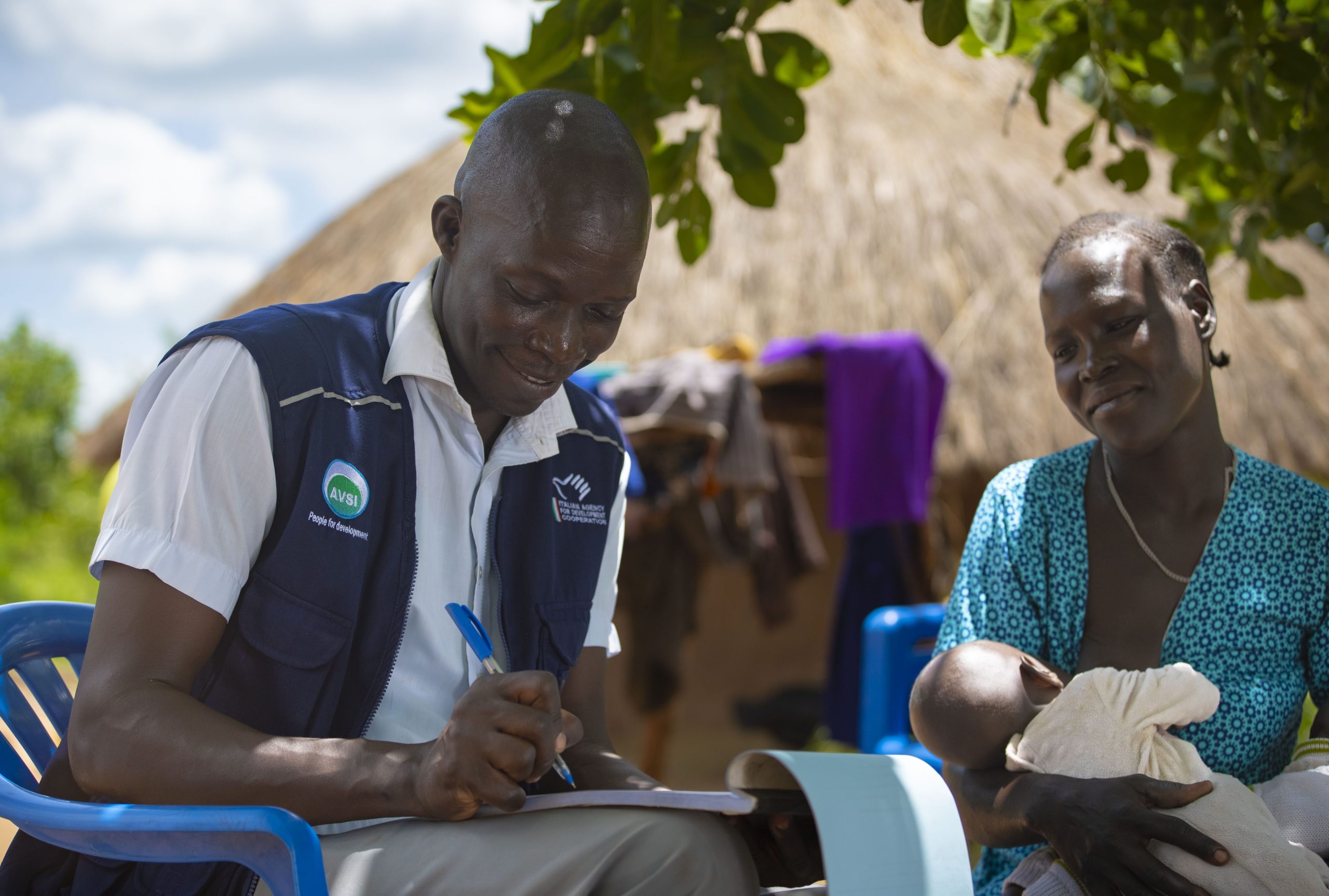West Nile, Uganda: When people are given a chance to self-reliance even amidst a humanitarian crisis, they can thrive. This vision is being pursued in two refugee hosting districts of Terego and Madi Okollo in the West Nile region of Uganda through the “Transition from Emergency to Sustainable Development Program (STEP)” that is implemented by AVSI with funding from the Italian Agency for Cooperation and Development (AICS).
The program launched in January 2024 focuses on Rhino Camp Settlement in Madi Okollo and Rhino Camp - Omugo Extension Settlement situated in Terego District, with both locations selected for the intervention due to their high refugee influx and environmental challenges. The targeted approach ensures resources reach those who need them most.
With a projection to directly benefit a total of 600 refugees and host community households (3,000 individuals) at an average of five individuals per household as per the Ministry of Gender Labour and Social Development where 60 percent are refugee and 40 percent host community households in the target equally shared between Terego and Madi Okollo Districts.
A program to address urgent needs
"We have several refugees facing food shortage," says Khalid Kintu, the Assistant Settlement Commandant and focal person for Livelihoods, Energy and Environment in Rhino Camp Refugee Settlement in Madi Okollo District. Will be directly supported 300 households (1,500 refugees) in Madi Okollo with 81 percent of them being female-headed and 1 percent children with disabilities.
The outstanding need for the refugees and their hosts to gain skills to grow their food makes AICS-STEP a timely intervention to the call of the inhabitants. Provision of agricultural training, improved market access, and sustainable practices for empowerment of the refugees and host communities towards food security is critical and will be addressed by the program.
But food security is just one piece of the puzzle. "Several families lost their food rations due to the reduction in funding to the World Food Programme, hence some refugees are facing mental distress and hunger," reveals Mr. Saka Wilfred, the Local Council V Chairperson for Terego who spoke about the benefits envisaged from this program when 1,500 refugee and host community households are supported through skills and income-generating opportunities, paving way for sustainable livelihoods and development among communities.

Beyond immediate needs and protecting the vulnerable
STEP will go beyond the immediate needs of the community by focusing on environmental sustainability which will be conveyed through environmental education, conservation efforts, distribution and planting of tree seedlings at individual households and selected schools, promotion of the use of renewable energy technologies, promotion of sustainable natural resources management and ensuring sustainable income generation through the advancement of business development and financial literacy.
In addition, the most vulnerable inhabitants, including survivors of gender-based violence and children, will be supported and facilitated in receiving care from competent partners/institutions through referrals, including: strengthening child protection mechanisms to ensure the reduction of gender-based violence cases in order to achieve a just and equitable society.
Collaboration is key
Success doesn't happen in isolation. AICS-STEP recognizes the importance of collaboration and works closely with the Local Governments, UN agencies, NGOs, and private sector partners for noticeable impact and a sustainable approach that leaves lasting results among populations.
The expected outcomes of the program paint a hopeful image for increased agricultural production and enriched livelihoods, decent environmental practices, strengthened protection, and better mental health, which represents positive prospects for refugees and host communities in the West Nile Region. AVSI in collaboration with AICS and its partners is committed to making this vision a reality and building a more resilient and sustainable future for communities in the districts of Terego and Madi Okollo one step at a time.




